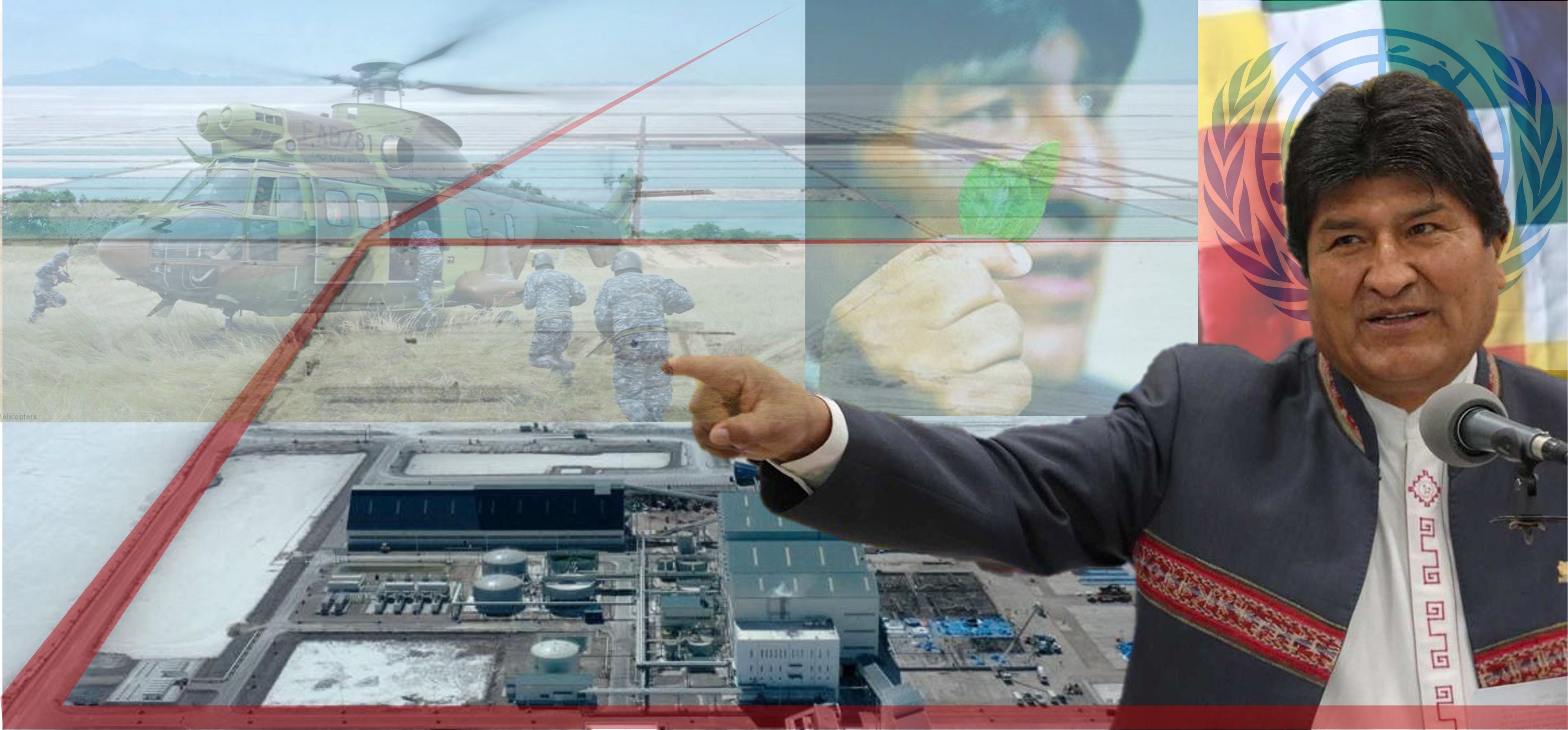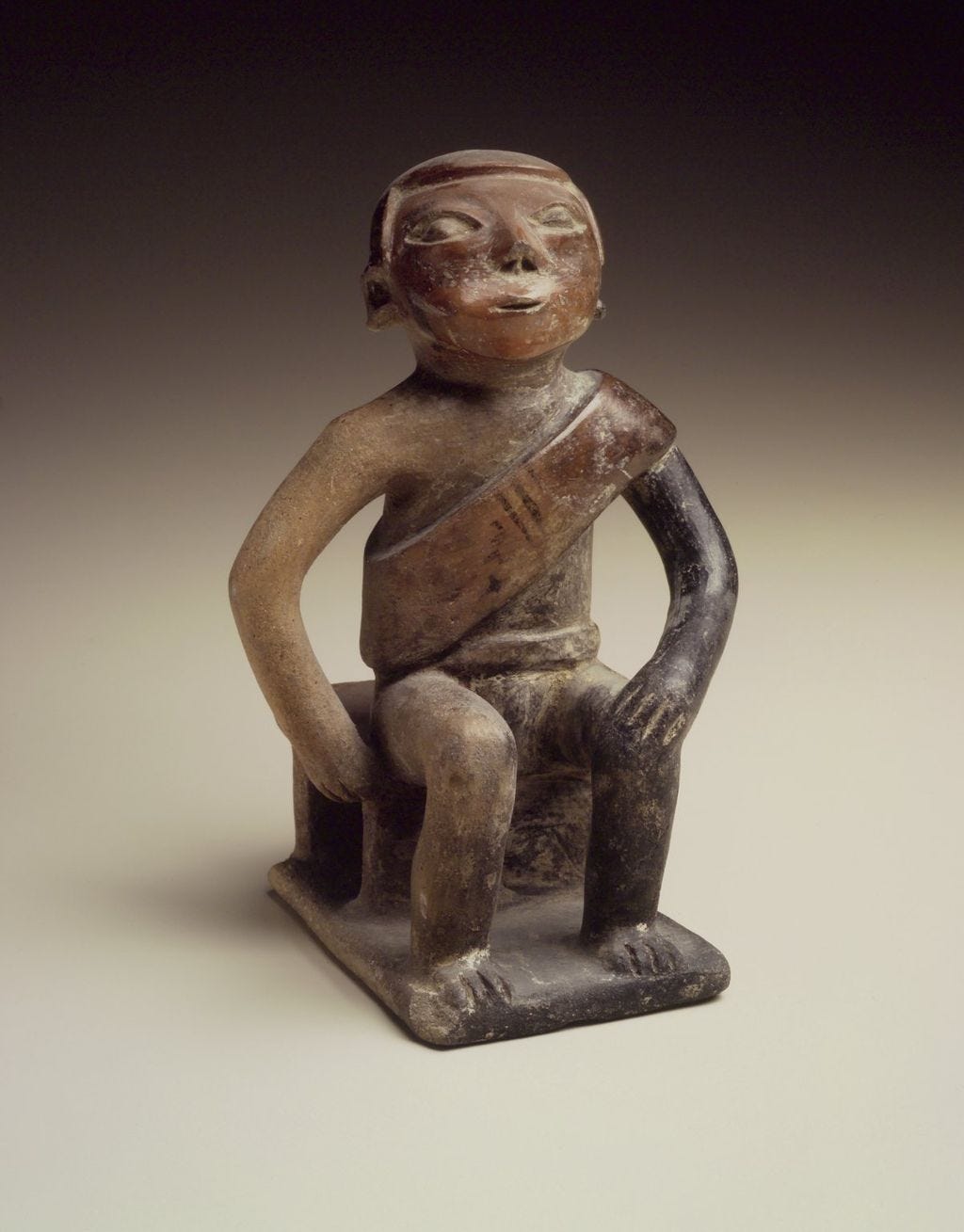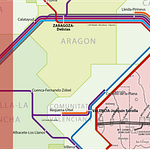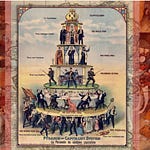Hello Interactors,
EVs made headlines this week as members of the U.S. Congress continue to chase their tail in search of remnants of the Green New Deal. I talked about cobalt last week as a key ingredient for lithium-ion batteries, but a new bill offered by congress this week has implications for another, more obvious, mineral — lithium. The biggest source is in an environmentally sensitive area of Bolivia, and U.S.-Bolivian relations are equally sensitive.
As interactors, you’re special individuals self-selected to be a part of an evolutionary journey. You’re also members of an attentive community so I welcome your participation.
Please leave your comments below or email me directly.
Now let’s go…
THE PARADOX OF NATURAL STOCKS
Today is the tomorrow you worried about yesterday. These words appeared on a ceramic plaque in the shape of a tea kettle that hung in the kitchen of my grandma’s house. Why do we worry about tomorrow? Is it because we don’t know what it brings? No way to control it? We wake up every day in a past tomorrow living in a future yesterday. Today’s tomorrows are becoming increasingly worrisome on a warming planet that needed help yesterday.
Democrats in Washington DC worried about tomorrow focused their action, in part, on Electric Vehicles (EV) this week. As part of the Inflation Reduction Act of 2022, they hope to expand EV tax credits and invent $10 billion in investment tax credits to build clean-technology manufacturing facilities.
There’s a provision on the EV tax credit regarding the sourcing and processing of the minerals needed to make the lithium-ion batteries found in EVs. It says, “with respect to the battery from which the electric motor of such vehicle draws electricity,” a certain percentage of the “critical minerals contained in such battery” must be ‘‘(i) extracted or processed in any country with which the United States has a free trade agreement in effect, or (ii) recycled in North America.”
This might explain why Treasury Secretary Janet Yellen called for more ‘friend-shoring’ while in Seoul South Korea earlier this week. That’s a term she uses to woo countries into trade practices agreeable to the U.S. She chose South Korea because we need their lithium-ion battery production. In April, LG announced plans for a $1.4 billion battery plant in Queen Creek, Arizona. They are the number two battery producer in the world behind China.
The provision isn’t just about the source of the battery, but the source of the materials in the battery. Their key ingredient – lithium – will most likely come from one or more of three countries in Latin America. They’ll need to be ‘Friend-shored’ if America wants to dominate the EV market. The country with the largest and most accessible source, Bolivia, has no shore and recently have not been friendly with the United States.
The world’s largest lithium reserves sit in the Atacama Desert which forms a triangulated region known as the “Lithium Triangle”. It sits within the geopolitical boundaries of Argentina, Bolivia, and Chile which were drawn in the 19th century. Bolivia, now home to the largest population of Indigenous people, became land locked when Chile crushed them in the War of the Pacific from 1879-1884. They took away land that gained Bolivia access to the Pacific Ocean. Bolivia lost even more land in the Gran Chaco region to Paraguay after the Chaco War from 1932–35

Much of the international law that governs these disputes were written to advantage American and European colonist expansion. They were part of a neoliberal agenda by the global North to ensure the rights of these borders and those legally living within them, but also to exploit their natural and human resources. Latin American countries rich with natural resources were eager to participate in the global economy. Many in these Latin American countries viewed their natural resources as an economic blessing – a way to secure and grow their new nation’s economic prosperity amidst a burgeoning global economy.
But for most, it was a curse that invited environmental degradation and poverty at the hands of outsiders. This paradox was observed as early as 1711 in a British publication, The Spectator, "It is generally observed, that in countries of the greatest plenty there is the poorest living." In 1995 economist Richard Auty saw this geographical pattern occurring in East Asia, Africa, and Latin America and gave it a name: ‘Resource Curse’.
Auty observes the curse is often explained away by neoliberals as a factor of work ethic; they are simply too lazy to keep up with ‘advanced’ economies or lack the necessary resources.1 But he says politics are blamed as well. The U.S. has spent centuries of time, energy, and money backing Latin American neoliberal regimes and schemes toward their globalist agenda. Both overtly and covertly and always rhetorically. Authoritatively from the right, ‘Peace through Strength’, or diplomatically from the left, ‘Friend-shoring.’
The United States has long envisioned an American continent that mimics the United States. University of Iowa international law professor, Christopher Rossi, writes,
“Latin Americanism emerged from a deeply circumspect nineteenth century regard for hegemonic foreign policy intentions of the United States, which had weaponized the defensive construct of its Monroe Doctrine (1823) with the annexation of Texas (1845), the Mexican-American War (1846-1848), and an assortment of turn of-the-century interventions and power plays in the Caribbean and Central America over future control of the Panama Canal.”2
One of the most recent power plays came with the suspected ousting of one of only two elected Indigenous leaders in the history of colonized America, in a country rich with lithium, Bolivia’s 65th president, Evo Morales.
REAGAN BIRTHS A POLITICIAN
Evo Morales was born in western Bolivia in a small Indigenous Aymara village to farmers in 1959. As a young boy he helped his dad grow coca and trade it in the markets of Cochabamba, Bolivia’s third largest city. It took two weeks by foot to get there. Coca is an Aymaran word, “Khoka” – ‘the tree’. It is most associated with cocaine, but the leaf has been central to Andean culture for thousands of years. It’s one of the oldest cultivated plants in South America and has been used as currency, tea, and was even the original ingredient in Coca-Cola. (Kola is a caffeinated African nut) Coca is also commonly chewed by Andeans. Saliva breaks down the leaf to release alkaloids; none of which produce the euphoric effects of processed coca for cocaine but are believed to have health benefits.
Growing up, Evo Morales learned Spanish and attended the Agrarian Humanistic Technical Institute of Orinoca (ITAHO), but never finished. After his military service, he became a coca grower. As cocaine gained popularity in America in the 70s, the price of coca increased and farming coca became popular. Morales soon joined a farmers union protecting Indigenous rights to farm coca for traditional Andean purposes in the face of competition among many, and hostilities toward some, coca growers.
In 1980 a far-right, anti-union, military dictator, Luis García Meza, became displeased with Bolivia’s turn toward a more pro-civilian communitarian government. He also sensed the decline of the Carter administration in the U.S. and gambled on the country swinging to the right in line with his beliefs. So, as Reagan entered the White House Meza took military control of Bolivia. A year later soldiers kidnapped a coca farmer accusing him of trafficking cocaine, beat him up, and burned him to death. This event is what spurred the young Evo Morales into politics.
Reagan distanced himself from Meza, who was eventually pressured to resign. His replacement was a leftist moderate, Hernán Siles Zuazo, who had served previously as president in the 1950s. Amid widespread poverty he came to the U.S. for aid. They agreed under the condition Bolivia would adopt their neoliberal economic plan. That plan involved the privatization of Bolivia’s natural resources – including the coca plant.
With Siles back in office in the 1980s, Reagan had a neoliberal ally and a partner in his infamous War on Drugs. Reagan pressured Siles to use military force to suppress coca growers. The U.S. sent troops to help burn coca fields. There were reports of beatings should owners resist. Farmers were offered $2500 an acre to voluntarily eradicate their crops. Morales was one of them and he refused. In that moment, the coca plant became a symbol of Bolivian natural resources, and his Indigenous Andean ancestral heritage, and he didn’t like U.S. imperialists threatening to control it. Activists protested chanting, “Long live coca! Death to the Yankees!"
Evo Morales organized similar protests throughout the 1980s and 90s and rose through the ranks of various union groups. He took leadership of MAS (Movement for Socialism) – “an indigenous-based political party that calls for the nationalization of industry, legalization of the coca leaf ... and fairer distribution of national resources." By the 2002 elections MAS became Bolivia’s second largest party gaining 20% of the popular vote.
In 2003, more protest erupted after a U.S. company offered to buy a nationalized natural gas pipeline for below market value. Activists took to the street resulting in 80 people dead. Morales called for President Sánchez de Lozada to resign. Lozada fled to Miami, Florida and was replaced by Carlos Mesa who had ties to U.S. In 2004 he resigned fearing a civil war between the upper-class White Bolivian elites concentrated in major cities and the rural working and middle class. In 2005, 85% of Bolivians turned out to vote. Evo Morales earned 54% of the total. This was the first victory by absolute majority in Bolivia in 40 years and the highest national vote percentage of any presidential candidate in Latin American history.3
President Morales maintained focus on state sovereignty over natural resources. His administration nationalized Bolivian oil and natural gas, telecommunications, electricity, and restructured a state-owned mining company. Thanks to high international commodity prices, for the first time since its borders had been ratified, Bolivia experienced a continuous economic public-sector surplus between 2006-2013.4
Because of his extractive agenda, Morales is sometimes regarded as capitalist; but a communitarian one. Instead of the profits going to privately held companies and select shareholders, they fund social programs. Morales is also regarded as an environmentalist and a voice for climate justice. His philosophy links to Andean Indigenous heritage and a widely held Amerindian belief in natural rights called “Buen Vivir” or “Living Well”. He ensconced many of these philosophies into the Bolivian constitution. His actions made Bolivia a world leader in encoding Indigenous and natural rights into law.
His ‘Living Well’ Bolivian laws, were simply following international law. The Universal Declaration of the Rights of Mother Earth is part of the World People’s Conference on Climate Change and the Rights of Mother Earth. It was this ratification that declared April 22 as International Earth Day. The Declaration is intended to spur every country in the world to enact laws and practices that recognize
“Mother Earth is the source of life, nourishment and learning and provides everything we need to live well.” (my italics)
There is a difference between ‘living well’ and ‘living better’. The current dominant economic philosophy encourages competition between individuals to live better then another, but Morales, and the UN are asking, what if we all could live well?
BATTERY POWERED COUP
The aim to for all to live well is why Morales included laws like:
“The State and any individual or collective person must respect, protect, and guarantee the rights of Mother Earth for the well-being of current and future generations”
There are 58 articles intended to help countries regulate ‘Living Well’, including:
“non-commercialization of the environmental functions of Mother Earth; integrality; precautionary action; guarantee to restore Mother Earth; guarantee to regenerate Mother Earth; historical responsibility; priority of prevention; plural participation; water for life; solidarity among human beings; harmonious relation; social justice; climate justice; plural economy; complementarity and equilibrium; and dialogue of traditional knowledges and science.”5
It also includes a ‘Right to Development’ that Morales was following with his extractive economic policy.
“the right to development [as] an inalienable human right by virtue of which every human person and all peoples are entitled to participate in, contribute to, and enjoy economic, social, cultural and political development, in which all human rights and fundamental freedoms can be fully realized.”6
The Organization of American States (OAS), an organization largely funded by the U.S. government and headquartered in Washington D.C., helped draft these declarations which Morales inserted into the Bolivian constitution. It’s derived from the 2007 United Nations Declaration of the Rights of Indigenous Peoples that
“provides a shared framework for improving temporary situations where two opposed interests collide, that is, the rights of indigenous peoples and State politics.”
There are 148 countries who ratified this declaration in 2016, but the United States, Canada, Colombia, and Brazil are not among them. They have issues with ideas of “free determination, consultation, and consent, collective rights, and natural resources, land, and territories.” Which is why the United States may have had issues with Morales.
Seeing Bolivia’s lithium stores were the next natural resource to be exploited by the United States, Morales turned his attention to developing lithium according to his ‘Living Well’ constitutional articles. But some Indigenous separatists, and Indigenous people most impacted by lithium extraction, became critical of Evo Morales and his eagerness to capitalize on this economic opportunity.
The first attempts at extraction were privatized, but seeking to avoid the ‘resource curse’, Morales formed the state-owned YLB, Yacimientos de Litio Bolivianos, for the sole purpose of lithium development. However, seeing Venezuela’s failure to effectively drill oil without outside investment or expertise, he decided to ease his stance on sole state-ownership and sought public-private partnerships. In 2014 and 2017 he invited a French and a Chinese company to build battery plants. In 2018, he signed on a German company, ACI Systems. And in 2019, the Chinese Xinjiang TBEA Group became a strategic partner to explore new extraction opportunities.
In October of that same year, 2019, came the national elections and with it another Morales victory. But he was accused of election fraud. (It’s still disputed, but findings fall along political, ethnic, and cultural lines) Around election time protests erupted in the city where the German plant was built. Locals claimed to unhappy with the ACI deal. In November, Morales cancelled it. A week later the military ousted Morales in what is widely believed to be a far-right coup not unlike the one that spurred Morales to political action in the 80s. Morales escaped in exile to Mexico and then Argentina. He also claims his life had been threatened by U.S. CIA operatives.
Predictably, the interim government was led by an opposition senator named Jeanine Áñez. The Catholic pink bible carrying former news anchor not only put lithium projects on hold, but criminal liability for police brutality against protesters enraged by the coup. She also cut off ties to Venezuela, Nicaragua, and Cuba and became cozy with the United States. A year later, October 2020, elections were held again and Morales’s former Minister of Economy, MAS candidate Luis Arce, won in a landslide.
Arce is viewed as a pragmatist but also an adherent the principles Morales instilled in the constitution. Including upholding his 2006 implementation of the Productive Community Social Economic Model which distributes economic surpluses to all Bolivian people so they may ‘live well’.
Arce said in a recent interview, “Parallel to the economic growth achieved, we managed to reduce moderate poverty from 60.6 percent in 2005 to 37.2 percent in 2019; extreme poverty from 38.2 percent to 12.9 percent and inequality," And just this week Bolivia micro-mobility startup, Quantum, said they hope Arce’s plans to build Bolivian batteries plays out soon, they want to put them in their tiny electric urban micro-cars and motorcycles. They operate out of Cochabamba where Morales traded coca for corn with his dad in public markets decades ago. Bolivian elections come in just three years but even Arce’s allies don’t believe their facilities can bring Bolivian batteries to market before 2030.

In the meantime, outside investors continue to court Bolivia, including the United States. But the U.S. hasn’t had an ambassador in Bolivia since Morales kicked Rob Goldberg out in 2008 on counts of espionage. And I’m sure American companies won’t want to legally adhere to the ‘Living Well’ laws of the Bolivian constitution; just as the American government doesn’t want to ratify the UN’s versions into international law. It may be hard for the U.S. to ‘Friend-shore’ Bolivia. Especially when their shore was taken by Chile. Meanwhile environmentalists worry the state’s ambition to curb poverty through extractive mining will continue to harm the environment.
Massive amounts of water are needed to lure lithium from their salty beds. Mining operations can use as much water in one day that a single family would use in twenty-two years.7 Alpine runoff is the only source of water in the ‘Lithium Triangle’ and La Niña can bring extended periods of drought. Furthermore, this area is home to three of the world’s six species of flamingos. Both plants and animals in this rich avifauna area are sensitive to ecological extremes risking further depletion of biodiversity.8
Little attention is given to the environmental impacts of lithium mining. The largest number of scholarly research on the subject overwhelming comes from the three countries who seek to exploit and consume it the most for the worldwide lithium-ion battery market: The United States, China, and Germany.9

But if Arce keeps to the laws of his own constitution, as ensconced by his friend and colleague Evo Morales, he must balance “precautionary action”, “guarantees to restore Mother Earth”, “guarantees to regenerate Mother Earth”, and respect “water for life” with “economic, social, cultural and political development” so that “all human rights and fundamental freedoms can be fully realized.”
There’s a mind twisting saying associated with ‘Living Well’ that reminds me of that plaque in my grandma’s kitchen. It says, “that which already is, is that which will be, without yet being what it already is.” Today, that which already is, is the tomorrow, that which will be, that you worried about yesterday, yet being what it already is. We may worry what tomorrow brings on the horizon of life, but this much is for sure: it depends on the recognition, and lawful ratification, of Mother Earth as the source of life, nourishment, and learning because it provides everything we need to live well.
Podcast Music:
1. Loca de Remate: Ronny Lovy.
2. Queremos Saya: Los Kjarkas.
3. Huellas de Mi Llamita - Grupo Aymara.
4. Tarpuricusum Sarata - Captain Planet Remix: Luzmila Carpio, Captain Planet.
Economic Development and the Resource Curse Thesis. In: Morrissey, O., Stewart, F. (eds) Economic and Political Reform in Developing Countries. Richard Auty. 1995.
Neoliberalism’s Contested Encounter With International Law in the Lithium Triangle. Christopher R. Ross. 2019.
Electoral Rules and the Transformation of Bolivian Politics: The Rise of Evo Morales. Betilde Muñoz-Pogossian. 2008.
The Case of Bolivia. Timothy J. Kehoe, Carlos Gustavo Machicado, José Peres Cajías. A Monetary and Fiscal History of Latin America, 1960-2017. University of Minnesota. 2021.
“Living Well” in the Constitution of Bolivia and the American Declaration on the Rights of Indigenous Peoples: Reflections on Well-Being and the Right to Development. Karen Giovanna Añaños Bedriñana, Bernardo Alfredo Hernández Umaña, and José Antonio Rodríguez Martín. International Journal of Environmental Research and Public Health. 2020.
Ibid.
Rossi (2)
Socio-environmental impacts of lithium mineral extraction: towards a research agenda. Datu Buyung Agusdinata, Wenjuan Liu, Hallie Eakin, and Hugo Romero. 2018.
Ibid.














